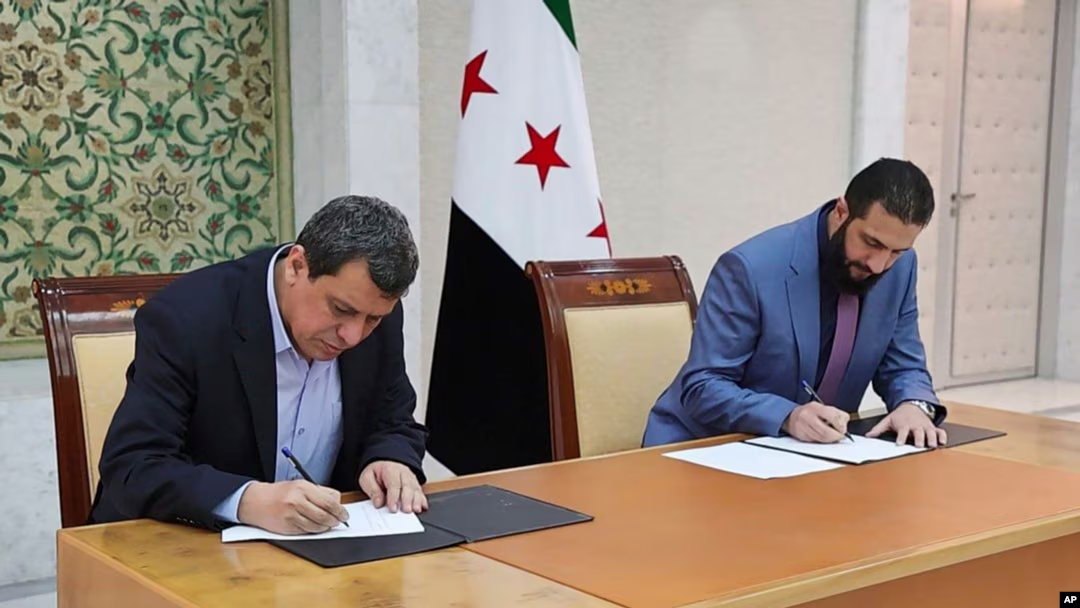
The United States reportedly encouraged a landmark deal between Syrian Kurdish forces and the Damascus government, a move that could help avert further conflict in northern Syria, according to six sources speaking to media.
The agreement, signed on Monday, is seen as a step towards unifying Syria, which has been fractured by 14 years of war. It paves the way for Kurdish-led forces, who control about a quarter of the country, to integrate with the Syrian government and regional Kurdish governing bodies. Specific details on how this will unfold remain unclear.
General Mazloum Abdi, head of the Syrian Democratic Forces (SDF), was flown to Damascus for the signing aboard a U.S. military aircraft. U.S. officials have confirmed that the U.S. played a crucial role in encouraging the SDF to pursue the agreement, seeking to resolve the group’s status in the post-war Syria.
The deal comes amid increasing pressure on both sides. President Ahmed al-Sharaa is dealing with sectarian violence reportedly linked to his government’s fighters, while the SDF faces conflict with Turkey-backed Syrian groups allied with Damascus. Sources suggest that the sectarian violence was a key factor in pushing the agreement forward.
The deal is also expected to reduce Turkish military pressure on the SDF, which Turkey considers an extension of the Kurdistan Workers’ Party (PKK). Turkish officials have welcomed the agreement. A Syrian government official indicated that efforts would be made to address issues between the SDF and Turkey.
The U.S. has deepened ties with Syrian Kurdish groups in recent years, especially after deploying forces to combat the Islamic State. This partnership, however, has caused tensions with Turkey. As President Donald Trump’s administration reassesses U.S. policy in Syria, Pentagon officials are preparing plans for a potential troop withdrawal, although no immediate pullout is expected.
Some analysts view this deal as part of the U.S.’s broader strategy to withdraw from Syria without sparking chaos, thus securing a political solution among Syria’s factions to avoid further conflict.
The details of how the SDF will integrate with Syria’s armed forces remain unresolved. The SDF has insisted that its forces must join as a unified bloc, while Damascus prefers individual integration. The deal also does not address the control of borders, and both sides will set up committees to resolve these issues.
The full impact of the agreement will depend on its execution, with skeptics noting that real challenges lie ahead in making it work. Despite uncertainties, the deal offers a potential path to greater stability in Syria.
